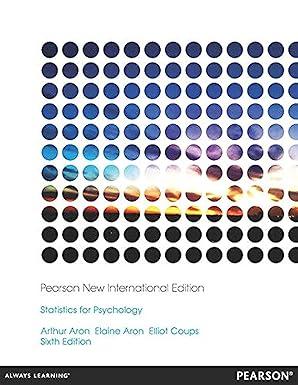4. Kunda and Oleson (1997) studied the effect on stereotypes of counterinformation, learning about someone who is
Question:
4. Kunda and Oleson (1997) studied the effect on stereotypes of counterinformation, learning about someone who is opposite to what you would expect from the stereotype.
They predicted that extreme counterinformation may have a boomerang effect—making the stereotype even stronger. Participants were preselected to be in the study based on a questionnaire in which they rated public relations (PR)
agents for their typical degree of extroversion: an “extreme-stereotype” group of participants who had rated PR agents as extremely extroverted and a “moderatestereotype”
group of participants who had rated PR agents as only moderately extroverted. During the actual study, some participants were given a description of a particular PR agent who was highly introverted, the extreme deviant condition;
the other participants were given no special description, the control condition.
Finally, all participants were asked about their beliefs about PR agents.
Kunda and Oleson (1997) reported the results as follows:
Briefly describe the meaning of these results to a person who has never had a course in statistics. (Do not go into the computational details, just the basic logic of the pattern of means, the significant results, and issues of interpreting nonsignificant results.)
Step by Step Answer:







